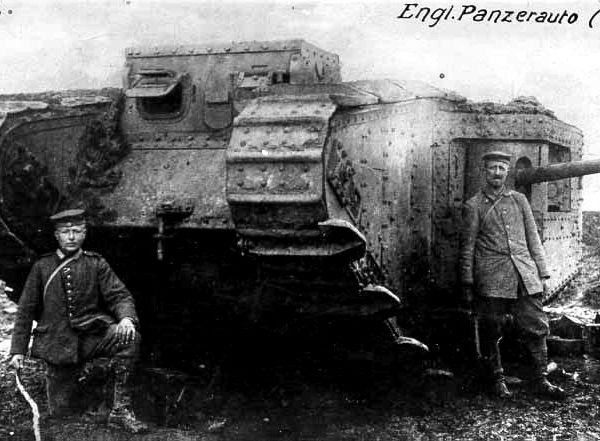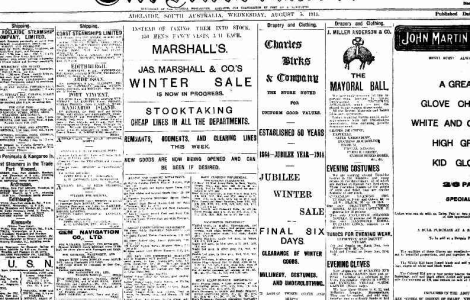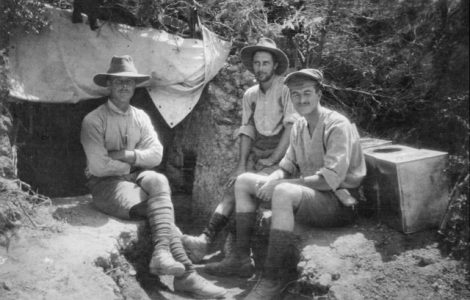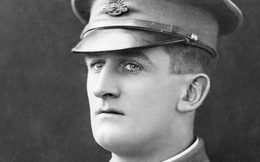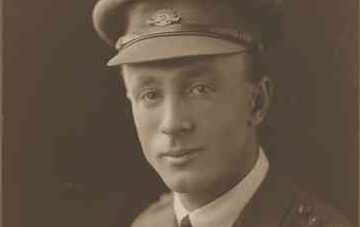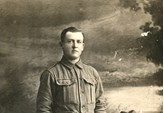April, 1917
To put it bluntly, April 1917 was a horror month for the Allies in Europe. With the exception of November 1914, the losses were the largest for the war: 30,000 killed, 100,000 wounded and 4000 captured. Australians were involved in the offensives, and suffered significant losses.
ON THE WESTERN FRONT
Our soldier correspondents were right in the thick of it, and their diaries and letters make moving reading. Most were involved in the Arras offensive, designed to break through the Hindenburg line at a point believed to be less heavily fortified. The month began with an offensive at Noreuil – a short-lived success; and then British tanks were supposed to assist the Australians at Bullecourt, but they were late arriving and proved to be of very little use.
Even Lou Avery’s irreverent humour cannot hide the tragedies that surrounded him. Members of his own party were wounded by an exploding shell, including his section officer, whose ‘legs were shattered, and it is doubtful if he will live.’ A few days later, he reported ‘Hundreds of German dead were scattered along the road… They wore new uniforms and their equipment was new, so apparently with was their first and last battle. Most of them looked very young and you could not help feeling sorry for them.’ Out of the lines on Anzac Day eve, he mentioned a present of a Decca gramphone with 50 records and 6000 needles – a present from the League of Loyal Women. We can only imagine how much such a gift meant to soldiers on the battlefields.
James Churchill-Smith and the 50th Battalion were involved in the action at Noreuil. On 2 April his diary tells us bluntly: “I killed 2 Germans”. It also tells us that his thoughts turned frequently to home during the month. We can imagine his feelings at missing ‘Dear Kate’s 21st birthday’. He also noted 25 April as “ANZAC DAY – the day of days… Brigade Sports in the afternoon… Battn dinner at night’.
Leo Terrell also took part in the Arras offensives and was injured by a piece of shell. He was more reflective about the Anzac Day anniversary: on 22 April, his diary records ‘… feeling very weary and tired not only in body but in south for the war is beginning to weary me.’ On 24 April, he notes ‘692 days from Australia’.
The 10th Battalion were not directly involved in these offensives, but they were again in and out of frontline trenches, and kept busy with engineering work.
IN THE MIDDLE EAST
In the Middle East, Ross Smith was also involved in a significant offensive battle, the second attack on Gaza, which took place from 18-20 April. He summed it up in his diary: ‘The whole attack was a failure, and after losing a lot of men we found ourselves back where we had started.’
BEHIND THE LINES IN GERMANY
Ethel Cooper spent April 1917 continuing her quest to get a pass that would allow her to leave Germany, but without success. The high point of her month seemed to be an invitation from her friend Frau Jaeger (an English woman married to a German) who, in Ethel’s mind, ‘deserves the Victoria Cross… for the way in which she tries to help her countryfolk through these hard times!’
IN SOUTH AUSTRLIA
At home, a bitter election campaign was being fought. Prime Minister Billy Hughes and his Nationalist colleagues were branding themselves as the ‘Win the War’ party. Industrial unrest was growing, but public opinion favoured the government.
Although the media painted a very positive picture of events in Europe, there was no hiding the fact that more recruits were desperately needed to keep the AIF at strength. As a result, new standards for recruits were issued: the height restriction was lowered to 5’ 2”, and the minimum chest circumference was dropped to 33”.
More wounded soldiers arrived home in April, and repatriation plans, such as training farms at Pompoota and Mt Remarkable, were discussed in the Advertiser.
Easter was celebrated on 8 April, and the traditional races at Oakbank were held on Easter Monday, with crowds in the thousands. ANZAC Day was not yet a public holiday, but there was no doubt that the date was etched in the public mind.
April was a big month for the Allies: the Canadians fought bravely at Vimy Ridge (remembered now as their equivalent ‘Gallipoli moment’) whilst the French army was beginning to mutiny. America’s entry into the war was met with mixed response. Of course it was welcomed, but many questioned why it had taken so long. Would it help to turn the tide of the war?


